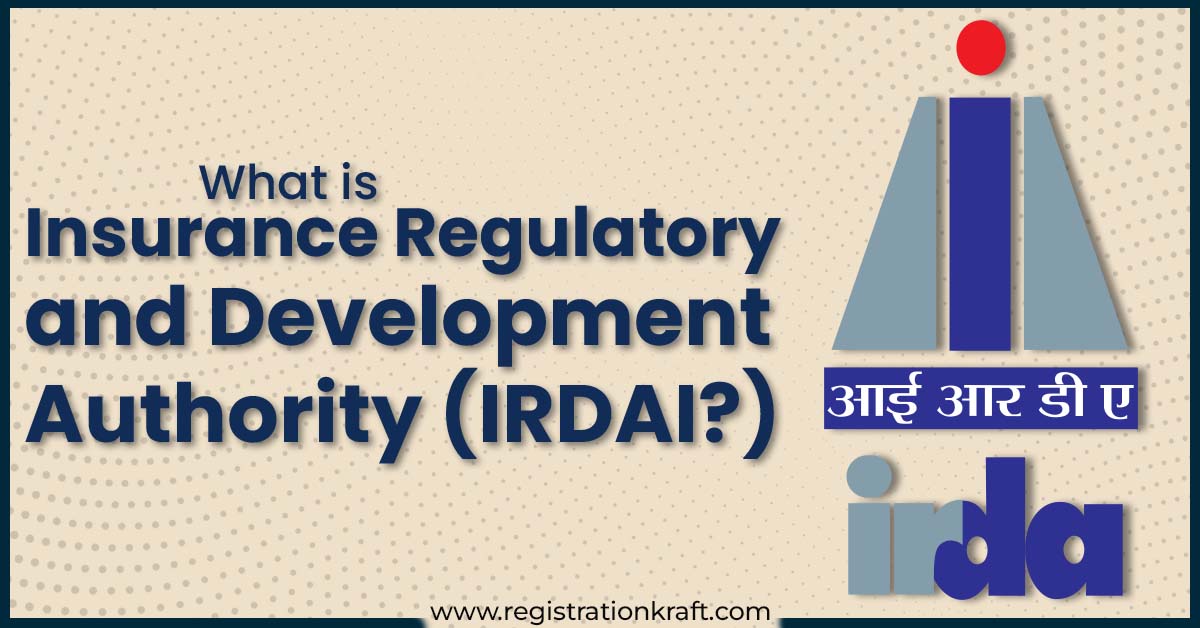The insurance companies in India are regulated by the IRDAI and it makes regulations for the insurance sector which must be fulfilled by the companies to operate the insurance business without any intervention of the authority. Also, it ensures that the rights of the insurers will be safe so that they don’t face any problem in their insurance policy premium, or claims.
What is IRDAI?
The IRDAI is a statutory body under the Ministry of Finance, Government of India and it is tasked with regulating and licensing the insurance and re-insurance industries in India. The IRDAI full form is Insurance Regulatory and Development Authority of India and it was established in April 2000.
The headquarters of IRDAI is located in Hyderabad which moved from Delhi in 2001. The IRDAI is regulated by the Insurance Regulatory and Development Authority of India Act, 1999 which was constituted by an act of parliament. The authority is a ten-member team consisting of the following members, appointed by the Government of India:
- Chairman
- Five whole-time members
- Four part-time members
What are the Functions of IRDA?
Section 14 of the IRDA Act, 1999 states the duties and powers of IRDAI and these are as follows:
- Protect the interest of and secure fair treatment to policyholders.
- Ensure the speedy growth of the insurance industry to provide long-term benefits to the common man.
- Set and promote high standards for fair dealing, financial soundness, and competence.
- Settlement of genuine claims, prevention of fraud, and other malpractices.
- Provide grievance redressal mechanism.
- Promote fair and transparent conduct in financial markets.
- Take action against those who follow inadequate and ineffective standards.
- Provide certification to insurance companies for application, renewal, modification, withdrawal, cancellation, or suspension.
- Specifying the code of conduct for surveyors and loss assessors.
- Resolve the disputes between insurers and intermediaries or insurance intermediaries.
History of Insurance and IRDAI
Back in 1818, when India was ruled by the British, the establishment of Calcutta’s Oriental Life Insurance Company marked the beginning of the insurance sector in India. However, this insurance company was only set up to serve the needs of the Europeans, and not the Indian natives. After this, many insurance companies were set up, but again only to serve the needs of the Europeans. However, many influential people like Babu Muttyal Seal made efforts to compel foreign life insurance companies to insure the Indians. Even after this, the Indian lives were not taken with much seriousness and they were subject to heavy premiums. However, in 1870, Bombay Mutual Life Assurance Society was established with the intention of covering Indian lives at normal rates.
In 1907, the Indian Mercantile Company Ltd. – the first general insurance company set up by an Indian, was established in Bombay. With the growth of fire, marine and accident insurance, a need was felt to cover such kinds of insurances under the Act of 1912. Multiple attempts were made to introduce such a legislation but it was in 1938, when a non-life insurance company was finally regulated due to the enactment of the Insurance Act, 1938. This act has gone through various amendments and is still considered a definitive piece of legislation on insurance which controls both life insurance and general insurance.
Establishment of IRDAI under IRDA Act
The Insurance Regulatory Development Authority of India, or IRDAI, was incorporated in April, 2000, under the Insurance Regulatory and Development Authority Act, 1999 (IRDA Act, 1999). IRDAI plays a major role in ensuring that the insurance industry runs smoothly and efficiently, and protects the interests of policyholders.
The members of IRDAI are appointed by the Government of India on the basis of their ability, integrity, knowledge and experience in life and general insurance, law, accountancy, economics, actuarial science, administration and the like. There are 10 members of IRDAI, out of which the main member is the chairman, and full members are full-time members, while the remaining four members are part-time members.
The duties and functions of IRDAI include regulating investment of funds by insurance companies by prescribing guidelines for them, supervising the Tariff Advisory Committee’s functioning, solving disputes that take place between insurers and the insured, and fixing the percentage of life/general insurance business which is to be undertaken by the insurer in the rural or social sector. IRDAI is the concerned authority for obtaining an IRDAI license for practicing as an insurance company.
Entities Regulated by IRDAI
The following entities are regulated by IRDAI:
1. Insurance Companies
IRDAI acts as a regulator for the insurance companies. If any new company wants to offer insurance policies in India, it needs to get a certificate of registration by IRDAI first. The insurance companies need to comply with the guidelines set by IRDAI to avoid legal consequences. To set up a Life, General or Health Insurance Company, the minimum equity capital requirement is Rs. 100 Crore.
2. Insurance Brokers
An insurance broker is a professional who acts like an intermediary when it comes to selling, soliciting, or negotiating insurance on behalf of a client for compensation. Schedule II – Form of IRDAI specifies that every insurance broker has to take out and maintain a professional indemnity insurance cover throughout the registration certificate’s validity period issued by the authority.
Before IRDAI grants the insurance broker’s license, certain conditions must be met, such as the capital requirements.
The following are the capital requirements for applying for Insurance broker license:
- Direct Broker – Rs. 75 Lakhs.
- Re-insurance Broker – Rs. 4 Crore.
- Composite Broker- Rs. 5 Crore.
3. Individual Agents
An insurance agent works under an insurance company, and helps the consumers to select an insurance policy offered by the insurance company he is employed under. IRDAI provides guidelines for the insurance agents. According to IRDAI, no person can act as insurance agent for more than one life insurer, one general insurer, one health insurers and one of each of the other mono-line insurers. Any person who is found to be acting as an insurance agent in contravention of the provisions of Insurance Agents Regulations, 2000 is liable for penalties which can extend to Rs. 10,000.
4. Corporate Agents
IRDAI also regulates the corporate agents. This authority has the power to inspect a Corporate Agent’s records and performance of his activities anytime. In case of any deficiency found, the Authority can take appropriate disciplinary action against the guilty corporate agent.
5. Surveyors & Loss Assessors
Surveyors and loss assessors provide service to the general insurance companies at the time of a fire or motor insurance claim. They carry out claim surveys to estimate the quantum of loss. A surveyor and loss assessor can only assess losses of the department which are specified in his license. IRDAI authorizes eligible persons to act as surveyor and loss assessors by granting them the license for the same.
6. Third Party Administrators
Third Party Administrators or TPAs are IRDA-registered companies that are engaged by the insurer for providing health services in exchange of a fee or by whatever name called and as may be mentioned in the health services agreement. Only a company registered under the Companies Act, 2013 (18 of 2013) can function as a TPA. A TPA has to maintain a minimum paid up equity share capital of not less than Rs. 4 crore. According to IRDAI, the net worth of a TPA shall at no time during the period of registration fall below rupees one crore.
7. Referral Providers
A referral entity provides data of its clients to an insurance company that wants to sell policies to them. It can introduce its clients to the insurance companies and display publicity material in its office to help the insurance company in selling policies. This referral entity cannot sell the policies itself.
8. Web Aggregators
The web aggregators gather and provide information regarding several insurance policies on their portal. The certificate of registration to act as an insurance web aggregator is provided by IRDAI. The web aggregators require a minimum net worth of not less than Rs. 50 lakhs at any time during previous 3 consecutive years.
9. Insurance Repositories
Insurance repositories maintain the insurance policies’ data in electronic form on insurance companies’ behalf. These repositories cannot sell or solicit insurance policies. According to the IRDAI guidelines, the Net Worth of the applicant for an insurance repository, on grant of in-principle approval by the IRDAI, shall be at least Rs 25 Crores before the registration certificate is issued by the authority.
10. Insurance Marketing Firm
Insurance marketing firm is a new distribution channel which solicits or procures insurance products, distributes other financial products by hiring individuals licensed to market, distribute and service such financial products. According to IRDAI, the minimum capital requirement for an insurance marketing firm should not be less than Rs. 5 lakhs if the applicant opts for only one district, which is an aspirational district. For all other cases, the capital requirement is a minimum of Rs. 10 lakhs
Conclusion
IRDAI plays an essential role in the regulation and smooth functioning of the insurance sector in India. It is responsible for coming up with guidelines for the insurance companies and helps to protect the interests of the policyholders. Apart from insurance companies, IRDAI also oversees insurance agents/brokers, Corporate Agents, Surveyors & Loss Assessors, Third Party Administrators, Referral Providers, Web Aggregators, Insurance Repositories and Insurance Marketing Firms. Being a license holder of IRDAI license ensures compliance with the regulatory requirements. If you need help in obtaining this license, get in touch with Registrationkraft!

